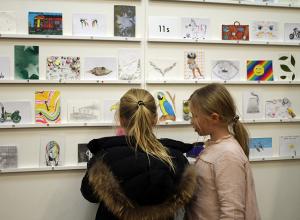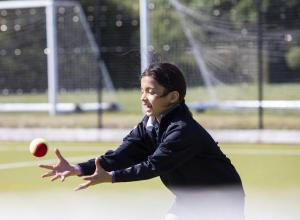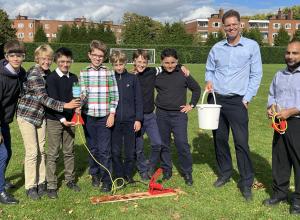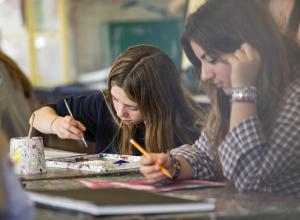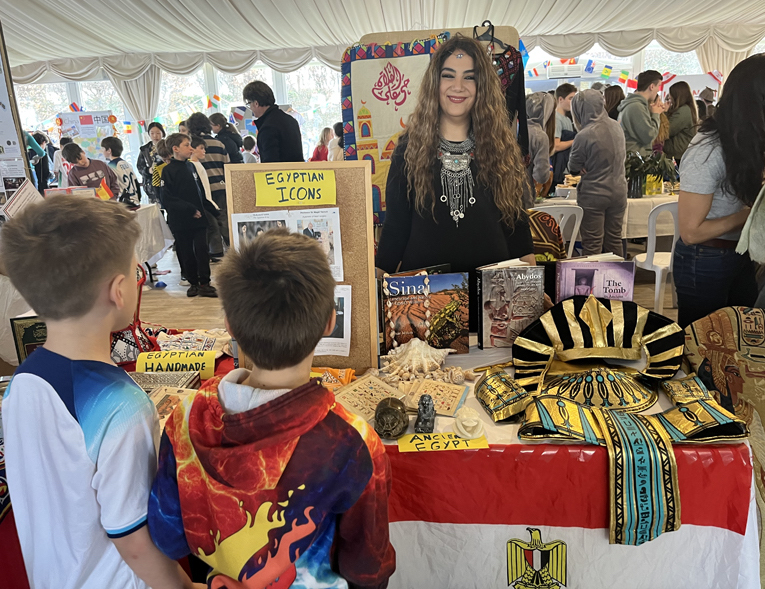
In his latest blog on key Prep ‘pillars’, Warren Rodricks explains why he believes Harrodian’s Express your Culture day (shown above) encapsulates why inclusivity is one of our school's essential values.
Could the end to the last term have been any better? I mean seriously? Express your Culture Day on 23rd March was an incredible event. Something that I truly hope will become a Harrodian tradition. There was so much about the day that made it brilliant.
There was delicious food (Shawarma made to order!)!
The clothing worn was often somewhat spectacular (looking at you, Mr Saller)!
The musical delights of 'the World beats' in the Harrodian Marquee were numerous and diverse, giving everyone a chance either to sway gently, or at some moments, to let go completely.
It was also an event that got me thinking about who I am and how I saw myself. It made me realise that my identity is in constant flux but that whoever or whatever I view myself as should not matter to me being treated as an equal. This sense of equality is an essential ingredient of inclusivity. It means different is just different. Not unequal.
People too often focus on difference as means of stratification. I believe in this, so I am better than you are. I look like this, so you are worse than I am. It is short-sighted, it is counter-productive and it is wrong.
Warren Rodricks
Inclusivity is not about saying we are all the same. We are not. And that is a truly wonderful thing. Inclusivity means understanding that we are different and celebrating those differences is key to holding us together rather than tearing us apart. Because behind the different music, the different clothes, the different food, we are all people. People who have hopes, fears, dreams and worries. And as people, we should be respected, cared for and loved. Inclusivity is this. It is making sure that everyone, no matter where they are from, no matter what they look like, no matter whom they love, knows that they are worthy of our love. It is making sure that they understand their stories matter and they always will.
For young children, inclusivity does not start with grand sentiments of changing the world. Rather, it is about empathetically and compassionately considering what happens when you leave someone out. This is a common conundrum all children face in some form or another. It starts with considering the emotion and feelings of being left out. We ask, simply, ‘How would you feel if you were left out?’ When you ask them to step into another's shoes, children are able to understand why being left out is such a hurtful experience. They begin to realise that they would never want to be in the position of not being accepted. This provides them with the first building block in an inclusive mindset.
Inclusivity means understanding that we are different and celebrating those differences is key to holding us together rather than tearing us apart.
Warren Rodricks
We try, as educators, to get them to see that inclusivity means everyone has the opportunity to be happy. We want them to grasp that their action – or lack of it – within their immediate community is key to developing an inclusive atmosphere. They need to understand what inclusivity looks like at a small scale so that including others in their activities quickly becomes second nature to them. We believe that the earlier these seeds are sown in our pupils the more likely it is that the concept of inclusion will be deeply embedded in the decisions they will make, as they grow into leaders in their communities and society as a whole. The truth is, if their impulse to inclusivity does blossom into a positive instinct, then they will change the world into the better place we all hope for.
It is easy, after all, to look at the world around us and to see how differences can be used in harmful ways. We all witness examples of sexism, racism and classism in the news on a daily basis. People, historically, and currently, too often focus on difference as means of stratification. I believe in this, so I am better than you are. I look like this, so you are worse than I am. It is short-sighted, it is counter-productive and, most importantly, it is wrong.
Express your Culture Day made me incredibly proud to be part of a community that is encouraging the children in our care to express who they are, to explore what they want to be.
Express your Culture Day made me incredibly proud to be part of a community that is encouraging the children in our care to express who they are, to explore what they want to be. It is sometimes difficult to give children the freedom to explore their identity. But it is not the first time we have done this. Over the past two years, we have celebrated Pride Day which like, Express your Culture Day, helps pupils understand that we are not the same and, just as important, that our differences don't make us better or worse. Rather they make each of us unique. And this uniqueness is part of what makes life so interesting and exciting.
Through inclusivity we have the opportunity to partake in the celebration of being different, of being ourselves.
Inclusivity reminds us that everyone should be invited to take part, not just in the games we play at break times, but in all aspects of our lives. For it is through inclusivity that we have the opportunity to partake in the celebration of being different, of being ourselves.
Warren Rodricks, shown below, is Head of Lower Prep Mathematics. He welcomes feedback to this blog at website@harrodian.com


